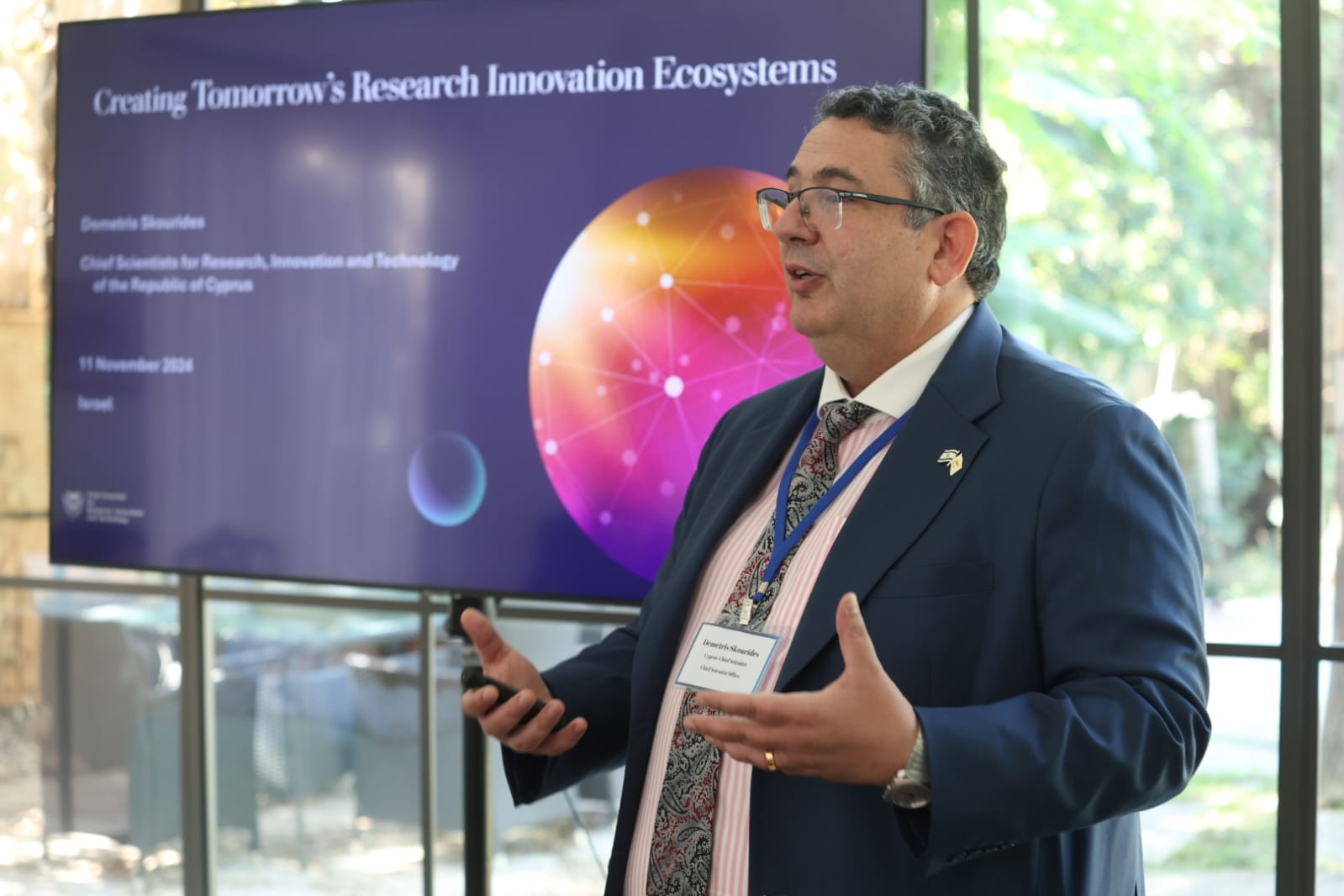Cyprus is involved in the efforts for the next step in medical technology at the European level, according to Chief Scientist Demetris Skourides.
“The use of a ‘virtual human twin’ for medical research is an innovative, albeit not entirely new idea,” Skourides said on Wednesday.
He explained that this approach is the latest iteration, and digitally supercharged version, of the age-old practice of using diagrams and, at some point, lifelike wax models, to study the human body.
“It all might sound exotic, but it is the logical evolution of tools used for centuries by humanity to make sense of complex and fragile systems,” he noted.
He added “that Cyprus is actively involved in Europe’s efforts to make this new leap forward in medical technology”.
In healthcare, Skourides mentioned that digital twins’ technology is used to create software models that do much more than copy the physical image and characteristics of human anatomy.
“Instead, they model the dynamic evolution of a body in real time,” he added.
Saying that, “Your doctor will be able to tailor treatments and medicine to your particular needs, being much more confident in the best available options, and more importantly, your doctor will be able to foresee possible side effects with greater precision than ever before.”
Referring to the shift in scientific methods, Skourides pointed out that scientists no longer talk only of in vitro research, but also of silico research, using chips, processors, and computing technology both as tools and as mediums.
“Large sets of data will become the basis for emulating one of the most complex systems in existence, the human body, in order to test and predict how bodies respond to new medications, therapies, or particular diseases,” he explained.
Cypriot researchers are already contributing to developing this innovative practice and its applications in training medical practitioners and testing therapy regimens.
Skourides underlined that the Cypriot nano-biotechnology company EPOS – IASIS, for example, recently participated in a cutting-edge symposium on digital health twins at the University of Cyprus and is part of DIGIPREDICT, an EU funded project.
“This Cypriot company is tasked, inter alia, with creating an interdisciplinary network to promote digital twins in compliance with European legislation and ethical requirements, and with preparing the public for a future when these tools will be used in hospitals and clinics—which is not as distant as we might think,” he stressed.
Having participated in May in this international symposium on ‘Digital Twins 4 Healthcare’, along with CYENS and KIOS from Cyprus, and 45 international researchers, Skourides said that “I am convinced that Cyprus has both the expertise and the ideas to play an important role in the EU’s push to develop digital twin technologies, including in the area of health.”
During the event, Skourides reflected on the inspiring discussions. “We touched on multiple aspects of the effort to design and build data model repositories,” he continued.
“Additionally, we focused on developing, testing, and implementing platforms that will combine computational advances with cybersecurity and cloud services,” he added.
“Moreover, the need to standardise these tools to facilitate their use in the clinical field and to address ethical and public opinion considerations was also a critical point of discussion,” he said.
“The conference was also an opportunity for me to highlight that quality data can be used not only to create clinical tools but also to provide insights to decision-makers and to contribute to policymaking,” he added.
He supported this with a mention of the approach known as Science for Policy, which is also backed by the Joint Research Centre and the European Science Advisory Forum.
He also pointed out current research on how Artificial Intelligence can help advance the implementation of Virtual Human Twins for the purposes of predictive, diagnostic, and personalised treatment.
Skourides also shared that digital twins are a tool that is already being used in Cyprus beyond the health sector.
“CYENS has been using interactive media and smart urban management systems to create the digital twin of the city of Nicosia,” he said.
“This particular project might not be directly related to the effort to develop Virtual Human Twins, but the expertise and technological solutions they developed can lay the groundwork for future initiatives.”
The involvement of Cypriot researchers is part of a wider push by the European Union to develop these technologies through the European Virtual Human Twins Initiative.
This initiative includes the EDITH project, which Skourides described as aiming to define a roadmap towards incorporating separated organ systems into a fully integrated whole-body digital twin.
“Cyprus participates in this effort in practice,” he explained.
“In 2023, a Cypriot company, InSysBio, along with the University of Cyprus and the University of Nicosia, joined various stakeholders in Europe’s innovation ecosystem.”
He added, “Together, they launched the Virtual Human Twins Manifesto, a statement of intent on developing these models and promoting their adoption across the EU.”
The EU has also earned €80 million under Horizon Europe to support research in the field, and €24 million towards creating a state-of-the-art digital platform under the Digital Europe Programme.
“There is every reason and plenty of incentive for Cypriot research centres and companies to show ambition and initiative,” Skourides said.
“Never before have there been such opportunities for funding and cooperation with experts from across Europe,” he added.
“We are already part of a new and groundbreaking effort, which can bring valuable expertise, tangible improvements to our daily lives, and promote healthy and fulfilling lives for our citizens.” Skourides concluded.






Click here to change your cookie preferences